
Ivan Pyryev
出生 : 1901-11-17, Kamen, Tomsk Governorate, Russian Empire
死亡 : 1968-02-07
略歴
Ivan Aleksandrovich Pyryev (17 November 1901 – 7 February 1968) was a Soviet-Russian film director and screenwriter remembered as the high priest of Stalinist cinema. He was awarded six Stalin Prizes (1941, 1942, 1946, 1946, 1948, 1951), served as Director of the Mosfilm studios (1954–57) and was, for a time, the most influential man in the Soviet motion picture industry.
Pyryev was born in Kamen-na-Obi, in the Tomsk Governorate of the Russian Empire (now Altai Krai, Russia). His early career included acting on stage directed by Vsevolod Meyerhold in The Forest and by Sergei Eisenstein in the Proletcult Theatre production The Mexican. Pyryev also acted in Eisenstein's first short film Glumov's Diary. Pyryev's early career included production jobs behind the camera, such as work for director Yuri Tarich. He débuted as a director in the age of silent film, with Strange Woman (1929).
During the 1930s and 1940s Pyryev rivaled Grigori Aleksandrov as the country's most successful director of musical comedies, all of which starred his wife Marina Ladynina. Even during wartime, when the Soviet film industry had been evacuated to Alma-Ata, Pyryev made popular and light-hearted features. In Six O'Clock after the War is Over the Romantic characters (played by Ladynina and Yevgeny Samoilov), when separated by war, arrange a date at 6 PM on the Victory Day, and the victory celebrations are shown towards the end of the film (which was released in November 1944).
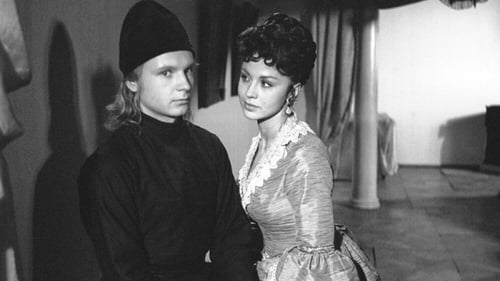
Writer
Based on the novel of the same name by Fyodor Dostoevsky. The tragic story of the Karamazov family takes place in a Russian province in the late 19th century. The relations of their father and three brothers are very complicated and contradictory. One of the brothers is accused of killing his father, whom he did not commit. The brothers are unable to help him, and only a loving girl follows him to hard labour.

Director
Based on the novel of the same name by Fyodor Dostoevsky. The tragic story of the Karamazov family takes place in a Russian province in the late 19th century. The relations of their father and three brothers are very complicated and contradictory. One of the brothers is accused of killing his father, whom he did not commit. The brothers are unable to help him, and only a loving girl follows him to hard labour.

Screenplay

Director

Director

Creative Producer
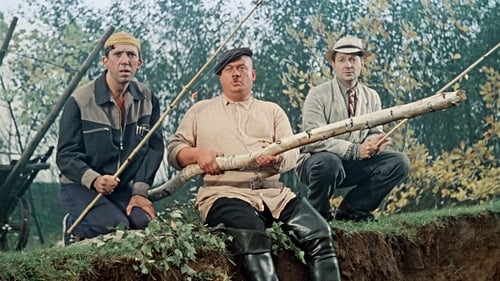
Creative Producer
This is the very first silent slapstick comedy short about adventures of Worldly, Coward, and Fool. What's more fun: fishing with worms, or dynamite? Three friends decided to have a blast! Unfortunately their dog Barbos just loves playing fetch. And this time that stick was used for blast fishing. Barbos saw people throwing a smoking stick in a water, and fetched it right back to his owners. The "unusual cross" part begins when owners try to outrun the dog with dynamite.

Creative Producer
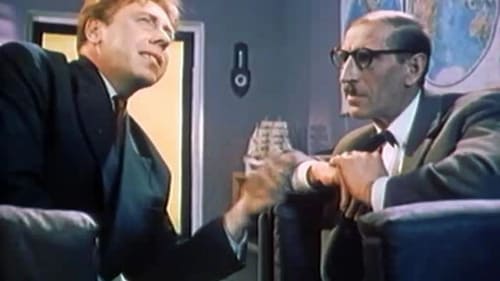
Creative Producer

Writer
Based on the short story of the same name by Fyodor Dostoyevsky.
Petersburg 40s of the XIX century. Summer, white nights. On the banks of the Neva, the Dreamer meets Nastenka. Five nights, walking around the city, young people talk about themselves. Having lost faith in the feelings of the person whom she loves, Nastenka promises the Dreamer in love with her to marry him, but... the other appears, Nastenka is happy again, and the Dreamer is alone again.

Director
Based on the short story of the same name by Fyodor Dostoyevsky.
Petersburg 40s of the XIX century. Summer, white nights. On the banks of the Neva, the Dreamer meets Nastenka. Five nights, walking around the city, young people talk about themselves. Having lost faith in the feelings of the person whom she loves, Nastenka promises the Dreamer in love with her to marry him, but... the other appears, Nastenka is happy again, and the Dreamer is alone again.
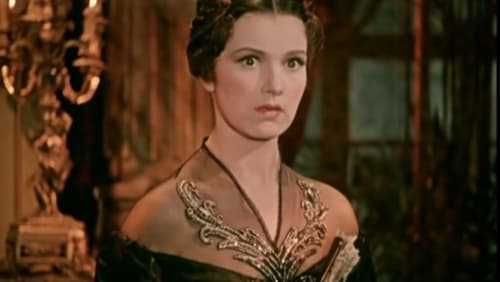
Writer
The film is based on the first part of the novel of the same name by Fyodor Dostoevsky.
Prince Myshkin returns to Russia from Switzerland, where he was treated in a psychiatric clinic. On the train, on the way to St.Petersburg, the prince meets Parfyon Rogozhin, who tells him of his passionate love for Nastasya Filippovna, the former containment woman of the millionaire Totsky. In St.Petersburg, the prince finds himself in the house of his distant relative – Lizaveta Yepanchina (General's wife), meets her husband, their daughters, as well as the Secretary of General – Ganya Ivolgin. The portrait of Nastasya Filippovna, accidentally seen on the general’s table, makes a great impression on the prince...

Director
The film is based on the first part of the novel of the same name by Fyodor Dostoevsky.
Prince Myshkin returns to Russia from Switzerland, where he was treated in a psychiatric clinic. On the train, on the way to St.Petersburg, the prince meets Parfyon Rogozhin, who tells him of his passionate love for Nastasya Filippovna, the former containment woman of the millionaire Totsky. In St.Petersburg, the prince finds himself in the house of his distant relative – Lizaveta Yepanchina (General's wife), meets her husband, their daughters, as well as the Secretary of General – Ganya Ivolgin. The portrait of Nastasya Filippovna, accidentally seen on the general’s table, makes a great impression on the prince...

Writer
An old man suddenly realizes that both his daughters aren't happy so he decides to help them to find happiness.

Director
An old man suddenly realizes that both his daughters aren't happy so he decides to help them to find happiness.

Writer
Film about the third 'Weltfestspiele der Jugend und Studenten für den Frieden' in East Berlin, 1951. West Germany is represented as a degenerate country which has been occupied by the Americans and is still inclined to fascism. We see the construction of the stadium, the departure and arrival of the delegations, the opening and closing by Enrico Berlinguer, a sports event, the parade of the delegations, a visit to Potsdam, folk dancing, and police violence against youngsters from West Berlin who want to visit East Germany because of the games. The film is interlaced with shots from the Korean War and a parade by NATO-troops in West Germany. Featuring Robert Montgomery, Konrad Adenauer, Wilhelm Pieck, Dwight Eisenhower, Robert Leer and Erich Honecker. The crew comprised no less than 24 cameramen. This project was the first great colour film Ivens co-operated in.

Director
Film about the third 'Weltfestspiele der Jugend und Studenten für den Frieden' in East Berlin, 1951. West Germany is represented as a degenerate country which has been occupied by the Americans and is still inclined to fascism. We see the construction of the stadium, the departure and arrival of the delegations, the opening and closing by Enrico Berlinguer, a sports event, the parade of the delegations, a visit to Potsdam, folk dancing, and police violence against youngsters from West Berlin who want to visit East Germany because of the games. The film is interlaced with shots from the Korean War and a parade by NATO-troops in West Germany. Featuring Robert Montgomery, Konrad Adenauer, Wilhelm Pieck, Dwight Eisenhower, Robert Leer and Erich Honecker. The crew comprised no less than 24 cameramen. This project was the first great colour film Ivens co-operated in.
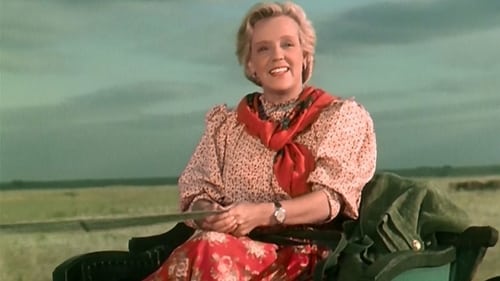
Director
In the steppes of the Kuban love is born on two collective farms while wheat is (enthusiastically) gathered. Galina, the energetic chairwoman of one of the two kolkhozes, vies with her male counterpart for the best harvest. At the same time Gordey, her rival, a former soldier, is (and has been for ages) in love with her. On her part, Dasha a collective farm worker, has heartbeat for a young technician of the competing kolkhoz...

Story
His right hand having been wounded during the war, concert pianist Andrei Balashov is unable to perform his art. As a result, the young man feels so depressed that he considers his life wasted. One day, he decides to leave the capital and flee from the woman he loves, Natasha, a rising singing star. Andrei takes refuge in Siberia, his native land. Once there, he gets a job in a sawmill, where he entertains his fellow-workers playing the accordion during leisure hours. Some time later, Natasha and her company are expected in America where they are to do a tour. But an airplane breakdown forces the pilot to land next to the village in which Andrei lives and works...

Director
His right hand having been wounded during the war, concert pianist Andrei Balashov is unable to perform his art. As a result, the young man feels so depressed that he considers his life wasted. One day, he decides to leave the capital and flee from the woman he loves, Natasha, a rising singing star. Andrei takes refuge in Siberia, his native land. Once there, he gets a job in a sawmill, where he entertains his fellow-workers playing the accordion during leisure hours. Some time later, Natasha and her company are expected in America where they are to do a tour. But an airplane breakdown forces the pilot to land next to the village in which Andrei lives and works...
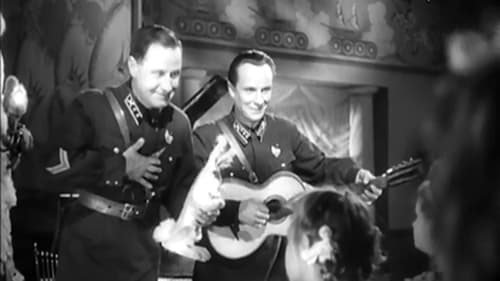
Director
Designed as a successor to "They Met In Moscow", with the same director, star and composer, "Six P. M." (1946 American release title) has two artillery officers meeting an attractive girl in Moscow between battles. One falls in love with her and they vow to meet in Moscow on a bridge at Six P.M. when the war ends. The war puts them on diverse trails, but the pledge is fulfilled against a setting of Moscow's famous fireworks displays.

Director
A story about a Secretary of the Communist Party District Committee who is leading partisans in their fight with the Nazis during WWII.

Director
They met in Moscow - a shy swineherd Glasha and shepherd Musaib. Long and difficult will be their way to love and a new meeting in this classic Soviet musical comedy.
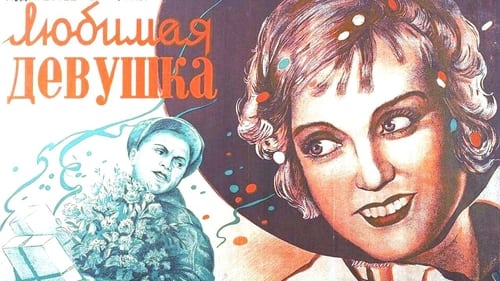
Director
Friends and family are trying to bring together newlyweds who separated immediately after the wedding.

Director
The story takes place in a Soviet placed in what is now Ukraine. A mechanic arrives in the Soviet, lead by a young independent woman driving tractors and, between many comedy sketches and propaganda mottoes, a love comes to light.

Director
A comedy about the happy life of Ukrainian collective farmers. Harvesting in one of the Ukrainian collective farms. The tractor driver Pavlo and the best collective farmer Marinka work perfectly. They love each other. I like not only Paul. The official and adventurer Kovynko has long been yearning for the Marinka and building all sorts of intrigues to the Komsomol members.

Director
Yasha, who likes Anna, accomodates siberian Pavel Kuganov, which later becomes a class-conscious worker in a factory. Anna refuses Yasha's offer of marriage and he therefore runs off to Siberia. After Pavel is hailed as a hero because he survives a fire accident in factory (which is in fact effect of his sabotage), Anna marries him. Pavel then becomes a reckless communist careerist, but only on surface. In fact, he is a traitor of the country and a spy, and gives Anna's party ID card to anti-communist movement. In spite of that, Anna is expelled from the communist party. Yasha returns from Siberia, only to find her love Anna desperate. They reveal the truth about Pavel (that he is a kulak who killed a kolchoz co-op leader), which means an end for Pavel.

Director
Directed by Ivan Pyryev.

Screenplay

Director
A humble and honest cashier is robbed while carrying a large sum of money and the bag ends up in the basement of a building. When he later discovers that the robber has not taken it with him, he decides to keep the money making everyone believe that the thief has the bag.

Assistant Director











